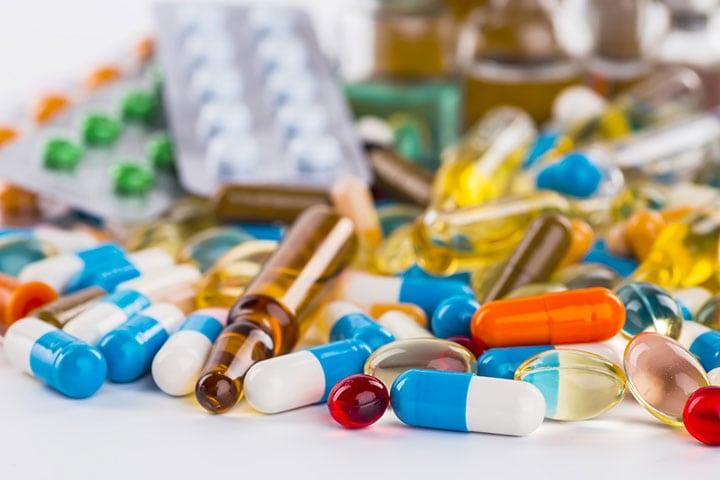A five-month study by the Associated Press National Investigative team found quantities of drugs — including antibiotics, sex hormones, and anti-seizure compounds — in the drinking water supplied to more than 40 million residents in 24 major U.S. metropolitan areas. In Philadelphia, for example, investigators found the drinking water contained 565 drugs or byproducts — including pharmaceuticals for pain, infection, cholesterol control, heart conditions, and asthma.
More recently, the United States Geological Survey discovered drug contamination in “a significant number of groundwater sources around the United States that are used for drinking water.” Contaminants included antibiotics and an immunosuppressant used to treat cancer. Testing also found oxycodone in bay mussels in Washington’s Puget Sound.
The federal The Safe Drinking Water Act (SDWA) requires municipal governments to assure that public supplies of drinking water are free from certain contaminants. Permissible levels of those contaminants in drinking water are created by the Environmental Protection Agency (EPA). States can elect to enforce the SDWA if they enact appropriate regulations and procedures. If states that elect to regulate their own drinking water fail to enforce the EPA standards, the EPA can take legal action to assure the public’s protection.
The EPA regulations address contamination by dangerous chemicals, including lead, arsenic, and copper, as well as certain microbial contaminants, including E. coli bacteria, the Hepatitis A virus, and parasites like Giardia and Cryptosporidium. Unfortunately, the EPA standards do not address contamination by pharmaceutical products.
While state and municipal governments are free to regulate their water supplies, they take inconsistent approaches to identifying and removing drug residues. Some test for a wide range of pharmaceutical compounds, while others test for only a couple.
And while the cumulative and long-term effects are largely still unknown, there is already ample evidence that growing amounts of drugs are being deposited in the water supplies, aquifers, and run-off areas in many parts of the country.
A Nationwide Problem
A recent five-month study by the Associated Press National Investigative team found quantities of drugs — including antibiotics, sex hormones, and anti-seizure compounds — in the drinking water supplied to more than 40 million residents in 24 major U.S. metropolitan areas. In Philadelphia, for example, investigators found the drinking water contained 565 drugs or byproducts — including pharmaceuticals for pain, infection, cholesterol control, heart conditions, and asthma.
And there is currently no universal way of isolating the drug residues in the water. The federal government does not require testing — and utility companies nationwide are inconsistent in their approaches, with some testing for a wide range of pharmaceutical compounds, and others testing for only a couple of them.
While the concentrations of drugs discovered have been small, few funds are currently earmarked for testing the long-term effects of exposure to them. And some gerontologists worry that frail seniors may be especially susceptible to suffering bad effects from unwittingly ingesting the drug residue.
What To Do
Conscientious consumers can follow a number of tips and consult a few ready resources to learn how to dispose of unused drugs properly.
Check labeling and package instructions. The labels on most drugs or the patient instructions packaged with them contain specific directions on disposing of unused portions — including whether they may be safely discarded or flushed.
If it is safe to dispose of the drugs in the trash, there are a few precautionary steps to take before you pitch them. Scratch out all identifying information on the label to protect the patient’s privacy. It’s best to remove the drugs from their original bottles or containers and mix them with an undesirable substance, such as used coffee grounds or cat litter. This may not only help dilute the potency, but will likely make the drugs less palatable for a pet or person rummaging through the trash. Then place the mixture into a sealed bag or other container.
If you’re unclear about whether a medication can be disposed of in the sink or toilet, check the U.S. Food & Drug Administration’s website, which includes a list of medicines that may be safely flushed, along with the active ingredients in each.
Take advantage of local programs. Most hospitals, police and sheriff’s departments, and some pharmacies offer sites for returning unused medications — or can provide information on local disposal options. Some maintain collection receptacles and others offer mail-back programs, providing packaging and low-cost mailing prices.
Participate in ‘Take Back’ Day. The DEA also sponsors an annual Take Back Day with safe sites accepting unused drugs in every state. The most recent Take Back Day, in October 2024, boasted some impressive statistics:
Total law enforcement participation: 4,425
Total number of collection sites: 4,644
Total weight of drugs collected: 629,953 lbs.
For those who miss the annual event, the DEA maintains a list of controlled substance public disposal locations searchable by Zip code. You can also call 1-800-882-9539 to locate a local authorized depository.
(This article was updated January 2025 since it originally published May 2018.)
